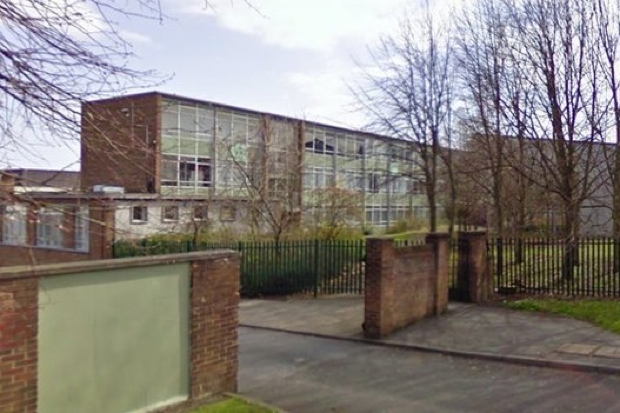Nicky Morgan, Secretary of State for Education, has announced the closure of the Durham Free School, following scandalously one-sided Ofsted reporting about the school. Closure would lead to less choice for parents in disadvantaged ex-mining villages here in the north-east. Local Labour MP, Mrs Blackman-Woods, says that there are surplus places available, so no free schools are required. There are surplus places, but only in schools that are perceived by poor parents as undesirable, low in academic standards and rife with bullying. There are great schools in Durham too, but these are oversubscribed. ‘Distance-based’ admissions criteria mean they’re accessible mainly to the sons and daughters of those in the best postcodes, academics, doctors and the like. That’s why parents from former mining villages helped create the Durham Free School, to give them a better choice. Closing it down would be very unjust to disadvantaged communities in this part of England.
But is this the only way we can organize educational provision? Enter E.G. West. Exactly 50 years ago, Professor Edwin George West wrote his seminal work, Education and the State, while he was based, as it happens, in the north-east of England, at Newcastle University. He asked the historical question, did we need government to provide education for ordinary people? Going back to original sources West showed that before the main government intervention in 1870 the vast majority of children were in school. One contemporaneous source, the Newcastle Commission of 1861, showed that 95.5 per cent of children were in school for an average of 5.7 years. Some were in church and philanthropic schools. But many of the poor were in what were disparagingly called ‘dame’ schools. Often run by a local woman – a ‘dame’ – these were low-cost private schools catering for the poor in Victorian England and Wales.
Then as now, Her Majesty’s Inspectorate didn’t like poor people taking the initiative to help themselves. In a neat twist on today’s Ofsted clampdown on faith schools like the Durham Free School, where the Inspectorate condemns the schools for teaching moral values through Christianity, in Victorian times the Ofsted-style inspectors of the day thought that schooling for the working classes should only be about religious values. The Inspectors’ official concept of educational efficiency meant ‘a schooling which scored high marks in divinity and morality’. Indeed, some schools were deemed worthless precisely because of failure in moral and religious training. But poor parents then thought that these values were better catered for in the family and in Sunday Schools, and they wanted their week-day schools to provide education in reading, writing and arithmetic. Then as now, the Inspectorate showed particular politically correct biases about the ethos that should be permitted in schools for the poor. One Inspector, H.S. Tremenheere, in the early 1850s noted that the dame schools enabled the poor to read ‘seditious literature without having the moral or intellectual strength to discern its falseness’. This was literature which was ‘exaggerating the principle of equality before God and the law’.
But these independent schools were fully private, and so government couldn’t really interfere. Even in 1870, when the Forster Act brought in the board schools, there was no intention of replacing the flourishing private schools. Forster was aware that voluntary private provision was a very valuable resource in educational provision, and simply needed to be supplemented as required, not replaced. In West’s memorable phrase, the government jumped into the saddle of a horse that was ‘already galloping’. Eventually, however, free (at the point of delivery) government provision crowded out the private, so that by the early 20th century, the vast majority of provision was public, and choices for ordinary people became the limited ones we know today.
West forensically examined all this evidence, decisively challenging the accepted role of government in education. His book got mixed reviews. The Sunday Times described it as ‘perhaps the most important work written on the subject this century … Dr West, by turning orthodox doctrine inside out, has effected a Copernican revolution’ (Sunday Times, 21st November 1965). Others disagreed. The Times Literary Supplement said that West gave the ‘impression of an ill-tempered Chesterton on an off-night’, (Jan 27th 1966). A review in the New Statesman by Professor ‘Chelly’ Halsey, Nuffield College, Oxford, was most intemperate: ‘Of all the verbal rubbish scattered about by the Institute of Economic Affairs’, Halsey begun, ‘this book is so far the most pernicious … When it comes to the history of education in the 19th century, Mr West goes beyond tolerable error.’ The IEA thought this went too far, and sued the New Statesman. Showing the charming greed-less innocence of those times, in the High Court the IEA settled for a published apology and costs.
Clearly, the way we organise education today is not the only way that it can be done. In 19th century England and Wales, before the state got involved, there was a burgeoning market in private education that would have been available to ordinary people up, including those here in the north-east. They were truly free schools. They were displaced by government, and the government is adept at making itself feel indispensable, so that now we have difficulty imagining what education without the state could be like. E.G. West showed us that there was and so could be an alternative. The Durham Free School was not really ‘free’. It was sanctioned by government, and what government giveth, government can taketh away. But E.G. West’s seminal book, 50 years after its publication, gives us hints about another possible way forward.
Professor James Tooley is the author of E.G. West: Economic Liberalism and the Role of Government in Education, published in paperback by Bloomsbury. He is professor of education policy at Newcastle University.






Comments